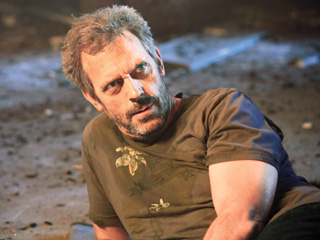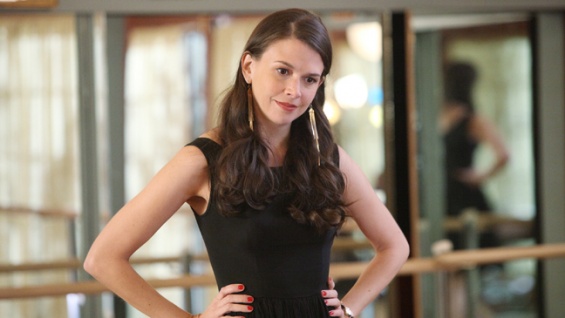

It is very seldom when watching a TV show that you find yourself completely clicking with it. For me it's happened a handful of times over the last 10 years or so. One such time was when I watched House. Those first three seasons were great for me. I got the show. I loved the main character, the tone, the soundtrack. I knew what David Shore was trying to accomplish.
Those first three seasons of House were thematically and philosophically rich character studies. The show was reserved and deliberate in how it dealt with character development and back story, parsing it out carefully through the main cast's interactions with the patient of the week.
Over time, House changed. The main characters' stories became more important than the patients' and each season became seemingly more jokey while being punctuated by bombastically dramatic sweeps episodes that involved bus crashes, the CIA and House operating on his own leg. I'm not saying one version of the show is any better than the other, but the show definitely changed after that third season. No longer was it a show set in a quaint little world where everyone psychoanalyzed each other and discussed ethical dilemmas while conducting differential diagnoses. In its place was a TV show that was more like a... TV show.
Needless to say I continued to watch as the seasons wore on. Season five was great, season six and seven drowned under the weight of House's romance with Cuddy, and season eight -- while not the same as the earlier seasons -- felt like hanging out with old friends again.
Having enjoyed season eight, it was with a nervous sense of excitement that I awaited the final hour of a show whose early seasons meant so much to me. And I have to say I'm impressed with how the finale, "Everybody Dies," paid respect to the the eight seasons that had preceded it. The finale managed to blend the sensibilities of the early seasons with the later seasons and although it's taken me the better part of a day to process it, I think it was a fitting conclusion.
Having primarily seen House as a character study of its titular character and a philosophical discussion from his point of view, I was relieved when the finale established House was hallucinating within the opening few minutes. House has always done hallucinations and non-linear storytelling well, with early episodes "Three Stories" and "No Reason" offering a master class on this form of storytelling. In "Everybody Dies," the hallucinations served to provide a final statement on all the main themes that had defined the show: futility, faith, pain, meaning, change, happiness, addiction, puzzles, love, friendship, truth and death. The fact that the finale was able to offer one last House-ian bit of commentary on all those things in the span of 40 minutes while using the characters of Amber, Stacy, Kutner and Cameron as the four cornerstones of House's subconscious is quite an achievement. To do this while bringing back a slew of former cast members, paying homage to Sherlock Holmes, honoring this season's plot lines and giving us one final medical mystery is even more impressive.
This isn't to say the episode was perfectly paced. Nor is it to say that I was overly enamored of every choice made in the episode's final act. But I certainly appreciate what David Shore and his writing staff wanted to achieve with his finale and I appreciate the ambition that went into creating it. And in many ways those last few sentences apply to how I felt about some of the show's later seasons. If you didn't like Huddy, House driving his car through her wall, House's Survivor-esque game to find a new team, the Tritter arc and so forth, I feel happy in knowing that all these major developments in the show were grounded in Shore looking for new ways to explore what he was trying to say thematically. There was always a reason for each creative decision. And although some decisions may not have always worked for everyone, I don't think it's fair to be too damning of ambition.
For the same reason, I don't think it's fair to be too dismissive of House's legacy. In a sea of procedurals, it is the rare one that eschews the world of law enforcement. And it is rare that each episode of a procedural is so layered. If you go back and watch any episode of House, there's scarcely a medical scene that goes by that doesn't work on at least three levels. The first level involved talking about the case of the week. Then beneath that the same scene would often deal with the ethical dilemma that case presented. And then those ethical dilemmas shed light on the main cast, which in turn would fuel House's arc/story in a given episode. This was always incredibly layered storytelling and is very rare on network TV, procedural or otherwise. To have people neglect that part of House's legacy 'cos they disliked a few seasons would be a shame.
And as the Desperate Housewives series finale reminded us all (in case we'd, y'know, forgotten), life is cyclical. And with the death of House, comes the birth of another show...
Bunheads.

From ABC Family and Amy Sherman-Palladino, the creator of Gilmore Girls, Bunheads is a fun, fast talking show about a Las Vegas show girl who moves to a small town on a Californian beach where she becomes a ballet instructor. As I watched the pilot this past week, thanks to a preview stream, I went in hoping for something along the same lines as the Gilmore Girls. And I was not disappointed.
Sherman-Palladino is as great at dialogue as ever and the new troop of actors she's assembled, including lead actress Sutton Foster, are every bit as capable at delivering their lines as Lauren Graham and Alexis Bledel were back in the day. Kelly Bishop's presence also doesn't hurt, as the sole familiar face from the Gilmore clan to appear in the Bunheads cast.
The concept of Bunheads isn't as rich with history as the Gilmore Girls was with the Gilmore family's ever-complex relationships, but part of the fun of this show is going to be watching those relationships grow from scratch.
I'm far from being the target audience of an ABC Family show about a ballet school, but there's always been something so escapist and fun about the worlds Amy Sherman-Palladino creates. So if you loved or were curious about the Gilmore Girls, I totally and completely recommend you give Bunheads a chance when it lands on ABC Family on June 11th.
